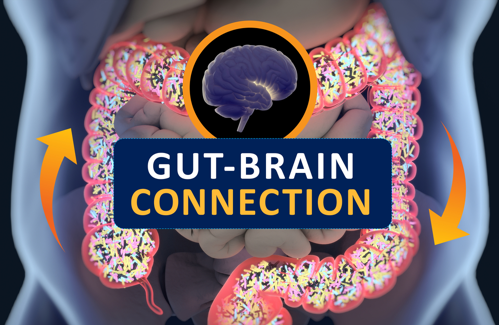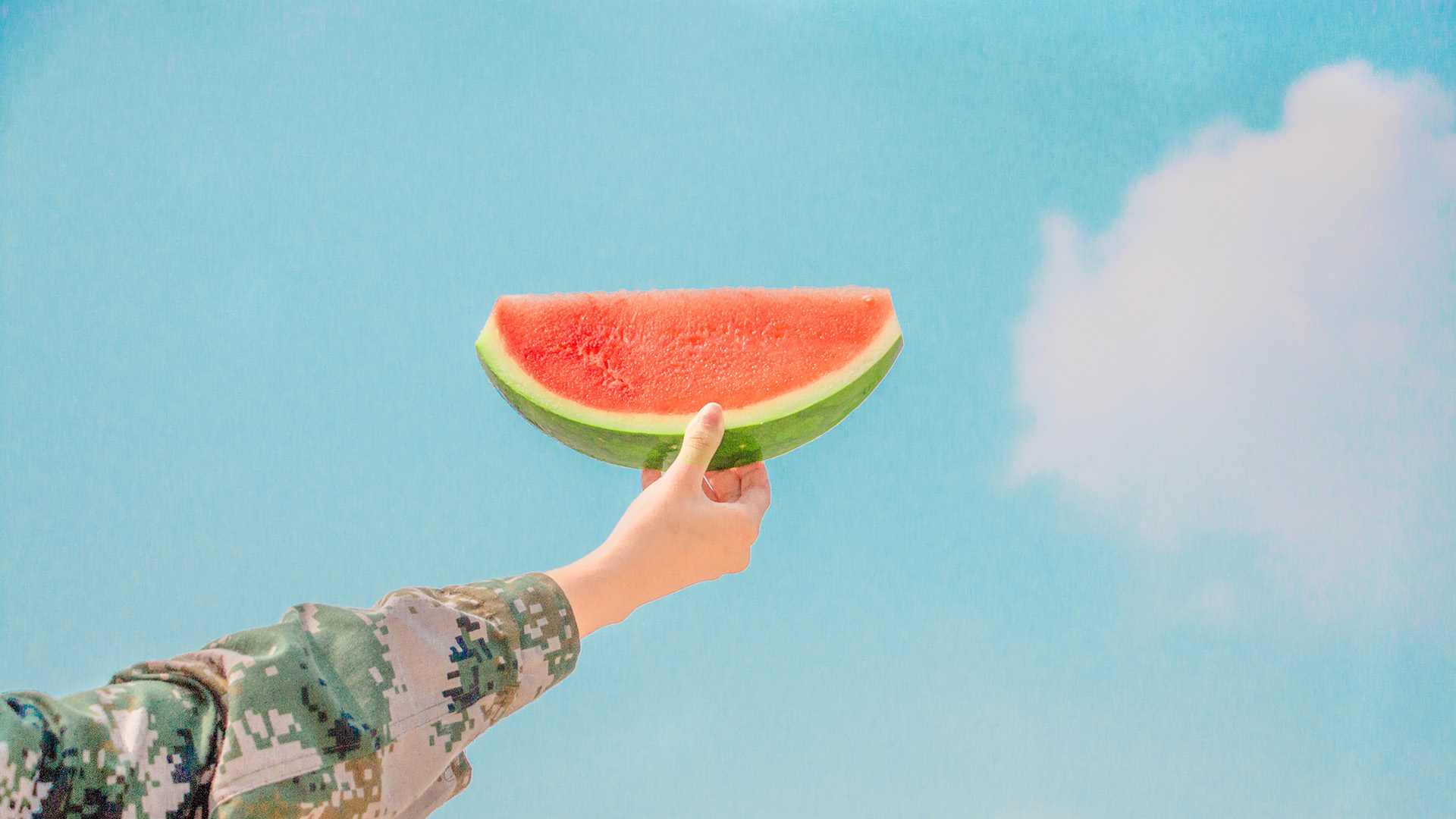It’s depressing news but one in 16 of us in Australia is currently living with depression and one in seven struggling with anxiety. While we are getting better at talking about mental health issues, we’re not doing so great at looking for ways to reduce the risk of mental distress occurring in the first place.
One area of research that’s been gaining a lot more media attention recently is the role of our diet on our mood and mental wellbeing.
You are what you eat so they say. It may come of little surprise to learn that poorer food choices, the fast foods and snacks while filling our bellies quickly and cheaply, are contributing to poorer physical and mental health.
Why this should be requires an introduction to the three key players, your gut, brain and microbiome and how they communicate with each other.
What is your microbiome?

Your microbiome comprises the 100 trillion bacteria, viruses, parasites and fungi that cover our body and inhabit our gut. We’ve known of its existence for a long time, but it is only relatively recently that it has been giving up some its secrets, enhancing our understanding of different disease processes that affect the human body and leading to potential novel approaches to their treatment and management.
While the thought of having all these microbes living inside us might seem alarming, they’ve been our constant companions throughout our evolutionary history. Most of them contribute to our wellbeing but, like any good story, there are always a couple of dastardly villains that work to produce the opposite effect, as you may remember from the last time you ate a dodgy chicken curry.
They work to help us digest our food, they produce vitamins B and K, they help to fight inflammation through the production of immune molecules and produce neurotransmitters identical to the ones produced by the brain including serotonin that helps to regulate emotion with 90% being produced in the gut.
Our gut microbes are special because they behave as independent janitors of our gut health, both communicating with and directing your gut and brain via the bi-directional gut-brain axis and the healthiest microbiome is the one that is the most diverse obtained through eating a wide variety of different foods.
The connection between our mood and food
Nutritional psychiatry has been spearheaded by the work of a number of researchers and scientists including Professor Susan Prescott, Drs John Cryan and Ted Dinan, Dr. Emeran Mayer and Prof Felice Jacka and her team from the Mood and Food Institute.
It is now believed that a disruption to the healthy balance of microbes through the overuse of antibiotics and or consumption of junk food that destroy the good bacteria allowing the bad bacteria to proliferate.
How do we know this to be true?
The evidence from animal and human studies is mounting. While sounding a bit disgusting faecal transplants (yes we are talking poo here) from humans with irritable bowel syndrome and anxiety into germ-free mice showed the mice subsequently developed the symptoms and behaviours of the two conditions.
The outcome from this work has seen faecal transplants being one of the hottest medical research areas as a potential new strategy to manage and reduce the symptoms of inflammatory bowel disease. It’s early days, but the results appear encouraging.
Meanwhile back to brains and mood. The Smiles Trial led by Felice Jacka and her team has been hailed as an important first step. The study sought to answer the question of whether dietary intervention (i.e. improving diet) could be useful as a treatment strategy for depression and the results indicated a big fat yes.
In the trial, 67 subjects with clinically diagnosed moderate to severe depression were enrolled to either a dietary support group or social support group. Fifty-five of the subjects were using either medication and or psychotherapy. Over the 12-week period, the group on dietary support were put on the ModiMedDiet that supported consuming 12 key food groups; whole grains, vegetables, fruit, legumes, low-fat and unsweetened dairy foods, raw and unsalted nuts, fish, lean red meat, chicken, eggs and olive oil.
Their intake of extras – sweets, refined cereals, fried food, fast-foods, processed meats and sugary drinks was reduced.
The primary outcome was a significant reduction in symptoms of depression in the dietary support group.
While it’s not being suggested that diet alone is the solution to mood disorders such as depression, our diet clearly has a role to play and if it means feeling less depressed, recovering more quickly or needing lower doses of anti-depressants, that surely has to be a big plus.
The link between fast food and depression is real and is a dose-response meaning the more fast food consumed the higher the risk of developing depression.
Which means we all have a choice to make.
Fast foods are readily available, cheap and often yummy but can we afford to take the risk of putting our mental wellbeing on the line?
It’s not about banning fast foods altogether, it’s about making the healthier choices more often, filling up on those foods that will support our health and wellbeing.
It’s about eating more plant-based foods, vegetables, fruit, whole-grains beans, seeds and nuts and legumes and less processed food that’s typically high in unhealthy trans fats, sugar and salt.
Fast food? It’s the fastest way to stuff up our brains according to researcher Beatrice Golumb.
How do you manage your nutritional choices, especially when you’re tired and can’t face the thought of cooking dinner?
Are meal times a battle with your kids who won’t eat their greens?
Have you worked out a way to keep the treats and sodas to a minimum?
I’d love to hear your thoughts.


